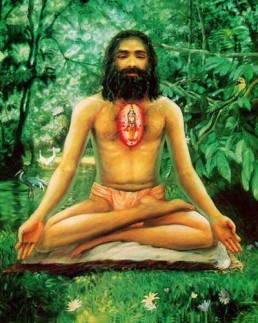Patanjali Yogasutra Introduction
Part 1 – Samādhi-pāda – Yoga and its Aims
1.1
1.2
1.3
1.4
1.5
1.6
1.7
1.8
1.9
1.10
1.11
1.12
1.13
1.14
1.15
1.16
1.17
1.18
1.19
1.20
1.21
1.22
1.23
1.24
1.25
1.26
1.27
1.28
1.29
1.30
1.31
1.32
1.33
1.34
1.35
1.36
1.37
1.38
1.39
1.40
1.41
1.42
1.43
1.44
1.45
1.46
1.47
1.48
1.49
1.50
1.51
Part 2 – Sādhana-pāda – Yoga and its Practice
2.1
2.2
2.3
2.4
2.5
2.6
2.7
2.8
2.9
2.10
2.11
2.12
2.13
2.14
2.15
2.16
2.17
2.18
2.19
2.20
2.21
2.22
2.23
2.24
2.25
2.26
2.27
2.28
2.29
2.30
2.31
2.32
2.33
2.34
2.35
2.36
2.37
2.38
2.39
2.40
2.41
2.42
2.43
2.44
2.45
2.46
2.47
2.48
2.49
2.50
2.51
2.52
2.53
2.54
2.55
Part 3 – Vibhūti-Pāda – Powers
3.1
3.2
3.3
3.4
3.5
3.6
3.7
3.8
3.9
3.10
3.11
3.12
3.13
3.14
3.15
3.16
3.17
3.18
3.19
3.20
3.21
3.22
3.23
3.24
3.25
3.26
3.27
3.28
3.29
3.30
3.31
3.32
3.33
3.34
3.35
3.36
3.37
3.38
3.39
3.40
3.41
3.42
3.43
3.44
3.45
3.46
3.47
3.48
3.49
3.50
3.51
3.52
3.53
3.54
3.55
3.56
Part 4 – Kaivalya-pāda – Liberation
4.1
4.2
4.3
4.4
4.5
4.6
4.7
4.8
4.9
4.10
4.11
4.12
4.13
4.14
4.15
4.16
4.17
4.18
4.19
4.20
4.21
4.22
4.23
4.24
4.25
4.26
4.27
4.28
4.29
4.30
4.31
4.32
4.33
4.34

Commentary on Sri Patanjali Yogasutra by Swami Vivekananda
The idea is that we have to get our knowledge or ordinary objects by direct perception, and by inference therefrom, and from testimony of people who are competent. By “people who are competent”, the Yogis always mean the Rishis, or the Seers of the thoughts recorded in the scriptures — the Vedas. According to them, the only proof of the scriptures is that they were the testimony of competent persons, yet they say the scriptures cannot take us to realisation. We can read all the Vedas, and yet will not realise anything, but when we practise their teachings, then we attain to that state which realises what the scriptures say, which penetrates where neither reason nor perception nor inference can go, and where the testimony of others cannot avail. This is what is meant by the aphorism.
Realisation is real religion, all the rest is only preparation — hearing lectures, or reading books, or reasoning is merely preparing the ground; it is not religion. Intellectual assent and intellectual dissent are not religion. The central idea of the Yogis is that just as we come in direct contact with objects of the senses, so religion even can be directly perceived in a far more intense sense. The truths of religion, as God and Soul, cannot be perceived by the external senses. I cannot see God with my eyes, nor can I touch Him with my hands, and we also know that neither can we reason beyond the senses. Reason leaves us at a point quite indecisive; we may reason all our lives, as the world has been doing for thousands of years, and the result is that we find we are incompetent to prove or disprove the facts of religion. What we perceive directly we take as the basis, and upon that basis we reason. So it is obvious that reasoning has to run within these bounds of perception. It can never go beyond. The whole scope of realisation, therefore, is beyond sense-perception. The Yogis say that man can go beyond his direct sense-perception, and beyond his reason also. Man has in him the faculty, the power, of transcending his intellect even, a power which is in every being, every creature. by the practice of Yoga that power is aroused, and then man transcends the ordinary limits of reason, and directly perceives things which are beyond all reason.
Yogasutra – Verse 1.49 – Yogasutra-1.49-śrutānumāna – In Sanskrit with English Transliteration, Translation, Meaning and Commentary by Swami Vivekananda – Yogasutra-1-49
